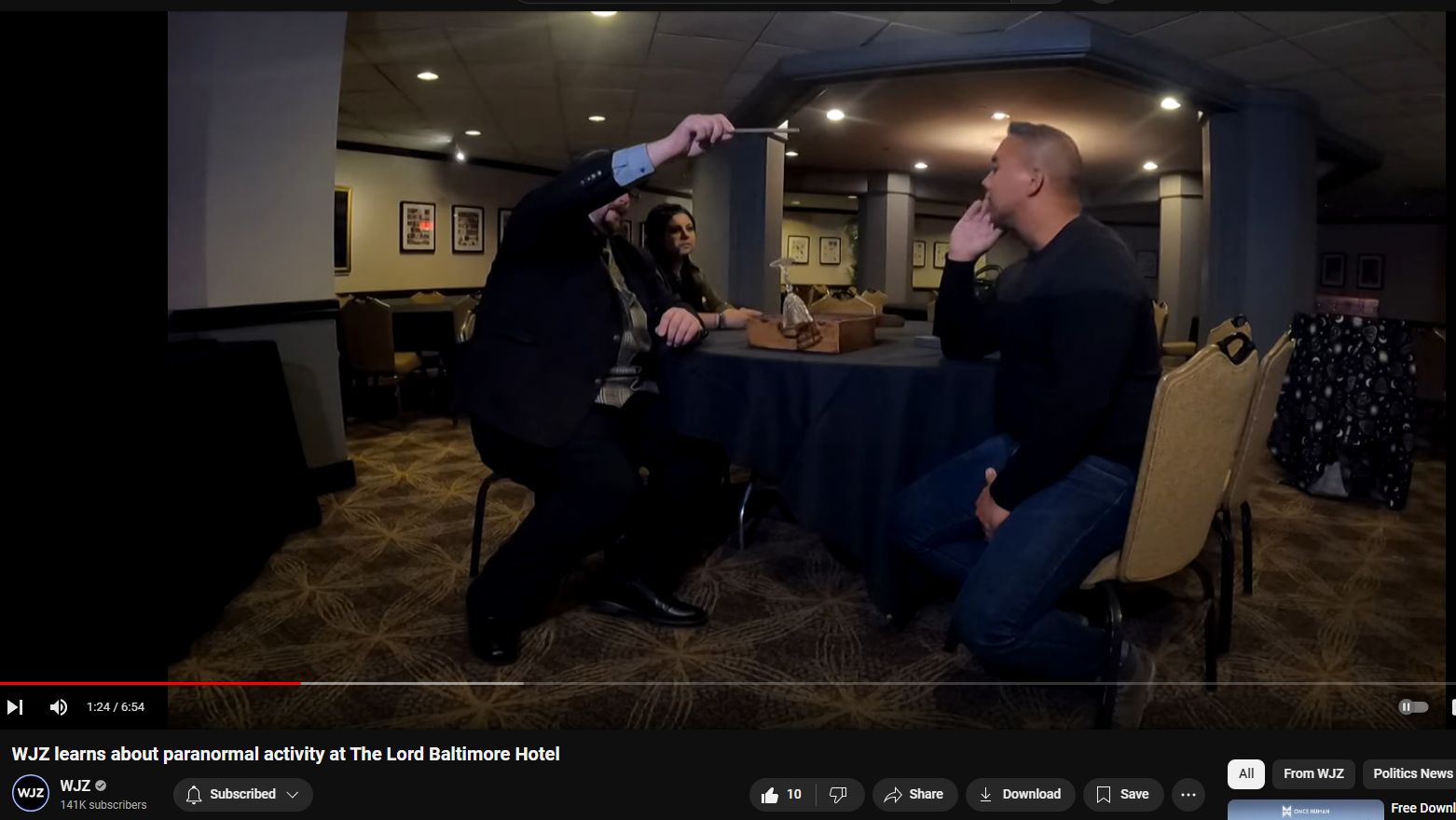153 CO DIF DW EastGhost GE HF JWO MF MG PM TC
Events Haunts Intrigues Members My Tickets WP
Mystery. Magic. Macabre. Diabolism. Esoterica. Arcana. Chills. Chance encounters. Fleeting findings. Secrets, scriptures, grimoires, tidbits, choice clues. Whispers, dreams, visions, knowings; private voices. Spooky experiences, strange sightings. Lore galore. Quirky, weird inexplicablae and the evermore uncommonly beyond beyond. A bazaar of bizarrely damned data favoring the fantastically fascinating, remarkably riveting, muchly maddening: Enjoy safe haven for sharing, exploring all things paranormal, supernatural, historical, curious, confounding. Welcome, wonderers.
Molly (spirit) Dings Bell on-camera EVP in Lord Baltimore Hotel 2024

21 Oct 2024 WJZ discovers glass bell response w Vince Wilson at Lord Baltimore Hotel
@ § # © Thu 26 Dec 2024 . 9:52pm GMT
"Wonder precedes wisdom." - Socrates
